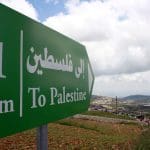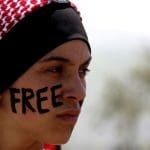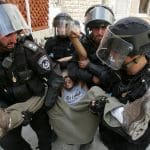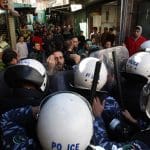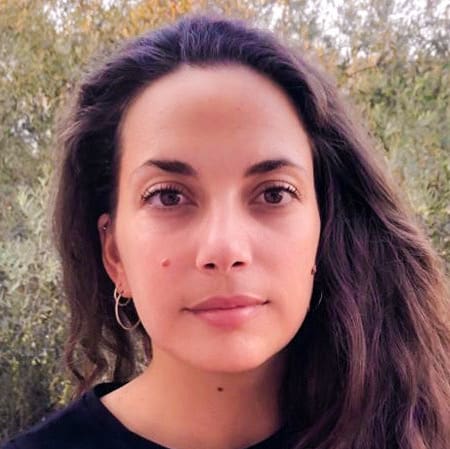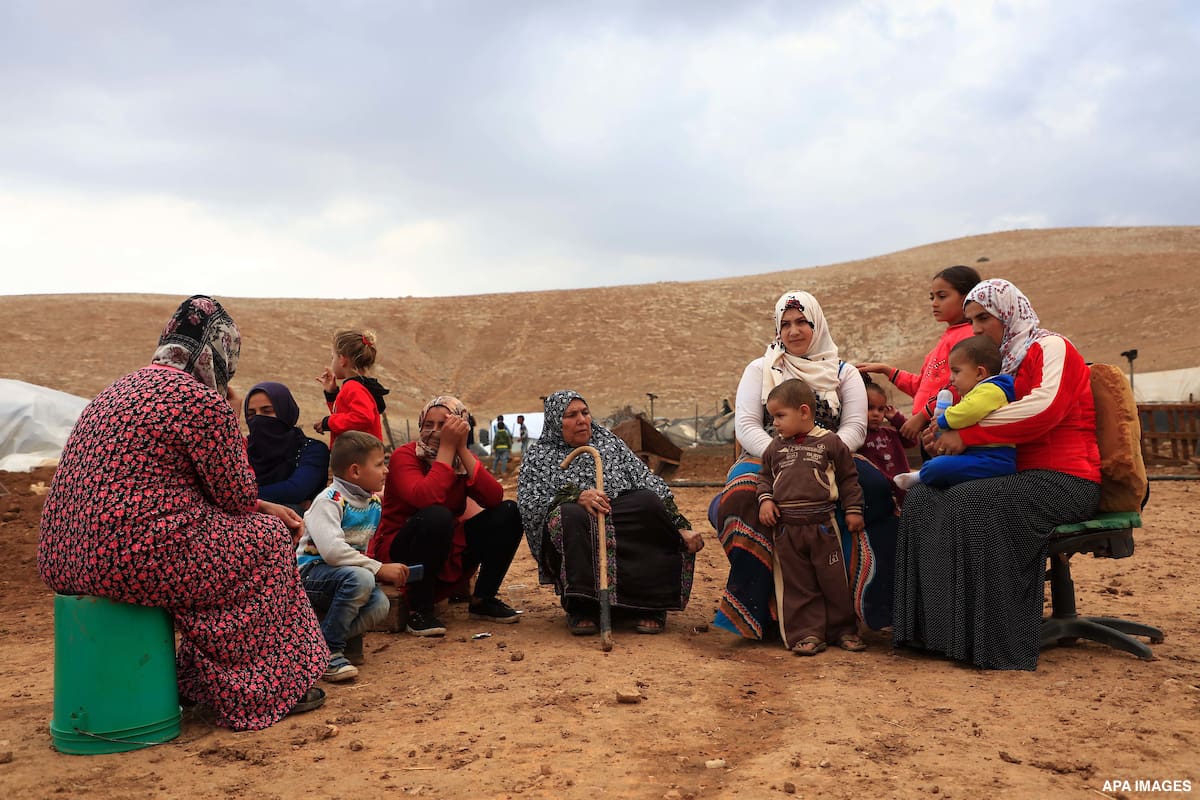
Executive Summary
Many communities across the world have for decades been challenging the notion that police and state justice institutions are forces of good. They argue that these institutions do not and cannot provide the level of justice that is required for the survivors and victims of harm and the wider community to heal. The Black Lives Matter movement has brought challenging state policing and state justice systems to the forefront of mainstream media. In particular, police and prison abolitionism has gained traction. Abolitionism recognizes that policing and prison systems entrench colonial, racial, class, and gendered oppression, and that incarceration as a response to harm and grievances does little to address the root causes at hand.
In colonized Palestine, the Israeli carceral regime has devasted Palestinian society and it is an issue which undeniably unites Palestinians. However, this unity has not yet led to a wider challenge to policing and incarceration. Indeed, many Palestinians make a clear separation between “political prisoners”—those accused of “security offences” by the Israeli regime—and “criminal prisoners.” One of the outcomes of this differentiation between prisoners as political and non-political is the implication that the root causes of “crimes” are not political, which is a dangerous and misleading claim. All prisoners are political.
Palestinians have been continually fighting for international recognition of their status as “political prisoners.” Through military court boycotts, hunger strikes, writings, and oral testimonies, Palestinian prisoners have asserted the importance of this political classification as it highlights incarceration as the ultimate tactic of control by the colonial state. This status also distinguishes between “political” and “criminal” prisoners, the latter of whom are incarcerated by both the Israeli regime and the Palestinian Authority (PA).
Since the 1993 Oslo Accords, the PA security forces and criminal justice system have monopolized the processes of solving conflicts and prosecuting crimes. Yet the creation of Palestinian policing and security institutions was not a step towards liberation; it was an extension and outsourcing of the colonial carceral regime. The PA security forces operate under the framework of “securitized peace,” meaning that they work in full cooperation with the Israeli regime. Today, the budget for the PA security sector is larger than that of the health, agriculture, and education sectors combined. Not only are these priorities skewed, it is particularly worrying considering the PA security forces have been consistently and systematically suppressing political dissent and opposition.
But communities have been solving grievances and addressing violence well before the emergence of nation-states. Today, communities around the world are reigniting practices of community accountability and transformative justice that build upon an intersectional understanding of power structures, such as those based on patriarchy, class, and race. Community accountability is a strategy that seeks to address grievances and violence within communities without the involvement of policing institutions. It thus often involves transformative justice, which seeks to understand why the violence, harm, or grievance took place, and how to prevent it from happening again in the future.
In Palestine, sulha has long been used as a practice of accountability and reconciliation between conflicting parties without the presence of the state. However, sulha is problematic and unrepresentative; it is wrought with patriarchal and class dynamics. As a result, there have been recent efforts among Palestinian communities to tackle violence and harm outside of the sulha process. One such case was in the Palestinian town of Kufr Qassem, where a youth group known as Haras al-Balad (protectors of the town) was established in order to mobilize against local mobs who were extracting protection money from people. During the Unity Intifada of May 2021, Haras al-Balad blocked the Israeli police from entering the town and arresting activists.
The key to finding the right community accountability model is to draw upon the experiences of others and to tailor it to the context and needs of a given community. The following are recommendations for Palestinian civil society and the international donor community for practicing community accountability and transformative justice that move away from incarceration:
Civil Society:
- Palestinian civil society organizations (CSOs), advocacy groups, and grassroots collectives should prioritize developing their community accountability skills.
- Palestinian educational institutions, CSOs, and businesses should develop and adopt emergency protocols that avoid police interventions.
- Palestinian CSOs and civil society more broadly should advocate for and support policies that shrink the police and carceral systems across colonized Palestine, including calling for defunding police and security forces.
Donor Community:
- Donors should end their collaboration with Palestinian security forces and prioritize funding alternative and transformative justice initiatives.
- Donors should make resources available for Palestinian civil society and grassroots groups to pursue community accountability practices, including mental health services, education, and community support groups.
Many communities across the world, especially people of color, queer communities, and the working classes, have for decades been challenging the notion that police and state justice institutions are forces of good. Their lived experiences reveal, to the contrary, systematic violence from these state institutions. As a result, they argue that these institutions do not and cannot provide the level of justice that is required for the survivors and victims of harm and the wider community to heal.1 2
The Black Lives Matter movement has brought challenging state policing and state justice systems to the forefront of mainstream media. In particular, police and prison abolitionism, which is the movement to end the police and carceral systems and adopt community-led alternatives, has gained traction. While not a monolithic movement, abolitionism holds several tenets, including the recognition that policing and prison systems entrench colonial, racial, class, and gendered oppression in ways often unmatched by other systems. Furthermore, abolitionism recognizes that incarceration as a response to harm and grievances does little to address the root causes at hand.
These fundamental tenets have demonstrated that community accountability and transformative justice are better alternatives for dealing with harm and violence. Many activists within the abolitionism movement thus advocate for a process of defunding the police in favor of resources being placed into community, health, and education-based initiatives.
In colonized Palestine, the Israeli carceral regime has devasted Palestinian society and it is an issue which undeniably unites Palestinians. However, this unity has not yet led to a wider challenge to policing and incarceration. Indeed, many Palestinians make a clear separation between “political prisoners”—those accused of “security offences” by the Israeli regime—and “criminal prisoners.” One of the outcomes of this differentiation between prisoners as political and non-political is the implication that the root causes of “crimes” are not political. Yet, criminal designations are deeply politically motivated, and as Al-Shabaka policy analyst Randa Wahbe argues, we need to move to an understanding that “all prisoners are political.” In doing so, we create space to imagine a radically different future, one in which all carceral systems have no place in society.
This policy brief seeks to not only contribute to the global call for a world without prisons, but to also open avenues for thinking beyond policing and incarceration. It does so by exploring alternative forms of accountability and justice in colonized Palestine. In recognition that this work must take place outside of policing and justice institutions in Palestine, it offers recommendations to Palestinian grassroots actors and civil society for practicing community accountability and transformative justice. It also offers recommendations to the international donor community for minimizing harm.
The Colonial Makeup of Policing in Palestine
Policing in Palestine has always been a colonial endeavor. This is demonstrated by the fact that many of the prisons and police stations used to police and incarcerate Palestinians during the British mandate are now used by the Israeli regime for the very same purpose. Indeed, prison and incarceration have long been common features of Palestinian life across colonized Palestine. Since 1967 alone, approximately 800,000 individuals have been detained by the Israeli regime, and currently, 4,600 Palestinian political prisoners are behind bars in Israeli jails. Many have served long sentences and others are on a repeat cycle of prison sentences.
Since 1967 alone, approximately 800,000 individuals have been detained by the Israeli regime, and currently, 4,600 Palestinian political prisoners are behind bars in Israeli jails Share on X
While these prisoners are referred to by the Israeli regime as “security detainees” because they are deemed a threat to Israeli security, Palestinians have been continually fighting for international recognition of their status as “political prisoners.” Through military court boycotts, hunger strikes, writings, and oral testimonies, Palestinian prisoners have asserted the importance of this political classification as it highlights incarceration as the ultimate tactic of control by the colonial state. This status also distinguishes between “political” and “criminal” prisoners, the latter of whom are incarcerated by both the Israeli regime and the Palestinian Authority (PA).
Since the 1993 Oslo Accords, civil police matters in the West Bank and Gaza have been transferred from the Israeli army to the newly created PA police—except for certain violations in Areas C, which are handled by the Israeli army. Indeed, paramount to Palestinian state-building was the creation of a PA security force and a criminal justice system, the latter of which would be independently capable of solving conflicts and prosecuting crimes. Within the 1948 territories and in East Jerusalem, Palestinians have Israeli citizenship or Israeli permanent residency status, and thus fall under Israeli civil administration.
Yet the creation of Palestinian policing and security institutions was not a step towards liberation; rather, it was an extension and outsourcing of the colonial carceral regime. The PA security forces operate under the framework of “securitized peace,” meaning that they work in full cooperation with the Israeli regime. Their existence relies on this cooperation as their funding comes from third-party states who hold them accountable to it. Today, the main funders of the Palestinian security forces and the criminal justice system include the UK, the US, Canada, and the EU. The latter created a special body in 2006, EUPOL COPPS, to focus on this sector. Its tasks include developing and reforming the Palestinian civil police, strengthening the criminal justice system, improving prosecution-police cooperation, and facilitating external donor assistance.
One of the focuses of the Palestinian police is cybercrimes, including identity theft, blackmail, and sextortion, which have increased over the last decade in the West Bank and Gaza. In an apparent response to this, the PA passed a Cyber Crime Law by presidential decree in June 2017. The police and their external funders focused on the fact that the previous legislation was outdated and not equipped to deal with the rise of social media. It was also framed by EUPOL COPPS as a way to tackle gendered violence, citing the disproportionate effects cybercrime can have on women and girls. The law was passed in secrecy and without consultation of Palestinian civil society actors. As was feared by various human rights groups, it was immediately enforced to target activists and journalists posting on social media platforms.
Furthermore, far from tackling gendered violence as its funders claim, Palestinian police reinforce it, not only by assaulting women protestors, but also by being unwilling to intervene in cases of domestic violence. Indeed, rarely are cases of domestic abuse and marital rape taken seriously, and often the process of reporting such cases is made purposefully difficult. Palestinian courts also fail to provide protection and justice for women and girls who have suffered gendered violence. A 2014 study by the UN High Commissioner for Human Rights found that judges often reduce sentences when they find out that a murder was committed in the name of family honor. This is of course not unique to Palestine; police and justice institutions across the world fail women in the face of gendered violence. Similarly, global “security” practices are often done in the name of women’s rights, from imperialist interventionism to domestic authoritarianism.
Today, the budget for the PA security sector, including the civil police, is larger than that of the health, agriculture, and education sectors combined. Not only are these priorities skewed, it is particularly worrying considering the PA security forces have been consistently and systematically suppressing political dissent and opposition. For their part, the Palestinian police replicate global patterns of incarceration, often targeting vulnerable individuals for detention, including many who are unable to afford bail. Meanwhile, the PA judiciary is facing an unprecedented monopoly on decision making, as PA President Mahmoud Abbas continues to rule by presidential decree and to appoint judges of his choosing.
Far from tackling gendered violence...Palestinian police reinforce it, not only by assaulting women protestors, but also by being unwilling to intervene in cases of domestic violence Share on X
After the Second Intifada, guns and gang violence spread within Palestinian communities in the 1948 territories. Oral dialogue and community conflict resolution strategies were thus substituted, in many cases, with brute force. This has resulted in increased engagement among some Palestinian citizens of Israel with Israeli government institutions in the hope of confronting the violence. One such form of engagement was an Israeli inter-ministerial task force created in 2019 which put forward a proposal to curb crime in Palestinian communities. It included increasing surveillance and recruiting more Palestinian men into the Israeli police force. The proposal failed to identify root socioeconomic causes of violence in Palestinian communities, instead “treating the problem [of violence] as intrinsic to Arab society,” as researcher Shahrazad Odeh writes.
The proposal was supported by Member of Knesset Mansour Abbas, leader of the United Arab List, and the recommendations in the proposal are in line with global institutional efforts to tackle violence in “minority” communities. Aside from this inter-ministerial task force, the Israeli regime has long been using the violence within Palestinian communities to increase surveillance. Over the past decade, 14 police stations and 13 police posts were established in Palestinian communities within the 1948 territories. Yet, contrary to the state narrative, this has not curbed violence; a report by Baladna demonstrated that, in fact, the number of homicides multiplied by 1.5 between 2011 and 2019.
Even though engagement with the Israeli police has increased, there still remains limited trust in state institutions. Odeh explains that in the case of violent incidents, the police “rarely take testimonies. They might arrest someone and release them the next day, in which time they might have interrogated them for information about the community.” In order to avoid opening an official case, the police sometimes even encourage the parties involved to engage in sulha, a traditional form of community conflict resolution that often does not involve the state. Evidently, Israeli police policy vis-à-vis Palestinian communities in the 1948 territories is to both surveil and recruit collaborators rather than provide accountability or justice.
It is clear that across colonized Palestine, both the Israeli and Palestinian policing and state justice institutions are damaging Palestinian communities, despite their claims to the contrary. By increasing surveillance and reinforcing existing harmful structures, they have confirmed that these institutional and colonial spaces cannot offer accountability and justice. Furthermore, while it is important to recognize the struggle of Palestinian “political prisoners,” it is also important to recognize that the designation of criminal activity, determined by states and regimes, often sidesteps the most powerful and targets vulnerable communities. It is thus crucial to problematize the notion of “crime” and to understand that the police and state justice institutions are, more often than not, perpetrators of the very violence they claim to tackle.
Reimagining Accountability and Justice in Palestine
Communities have been solving grievances and addressing violence well before the emergence of nation-states. Today, communities around the world are reigniting practices of community accountability and transformative justice that build upon an intersectional understanding of power structures, such as those based on patriarchy, class, and race present within society.
Community accountability is a strategy that seeks to address grievances and violence within communities without the involvement of policing institutions. It is a process in which a collective—whether a family, group of friends, or activists—works together to address the harm and violence that have been committed. It is recommended that the process include those who are trained in facilitation and harm reduction methods, as interventions led by untrained members can inadvertently exacerbate the harm.
According to INCITE!, a network of radical feminists of color, community accountability usually involves the affirmation of values that resist violence and oppression, the development of sustainable strategies to address the violence, the protection of those suffering violence or have grievances, and the collective commitment to the ongoing development of the community to “transform the political conditions that reinforce oppression and violence.” Community accountability thus often involves transformative justice, which seeks to understand why the violence, harm, or grievance took place, and how to prevent it from happening again in the future. Importantly, transformative justice requires that we disconnect the idea of punishment from justice.
Yet this concept, and that of a prison-free world, is still difficult for many to imagine. As Angela Davis writes in her seminal book Are Prisons Obsolete?:
Prison abolitionists are dismissed as utopians and idealists whose ideas are at best unrealistic and impracticable, and, at worst, mystifying and foolish. This is a measure of how difficult it is to envision a social order that does not rely on the threat of sequestering people in dreadful places designed to separate them from their communities and families. The prison is considered so “natural” that it is extremely hard to imagine life without it.
Indeed, states’ immediate reaction for when harm or violence is committed is to respond with a form of punitive justice, such as incarceration or, in extreme circumstances, the death penalty. For states, punitive justice is the prevailing form of justice because it is less costly than other forms, and can even be a lucrative business. Yet punitive justice does little to address the root cause of violence. In fact, more often than not, it perpetuates the cycle of violence because not only are prisons spaces of violence themselves, they also disproportionately target marginalized communities. Moreover, incarceration does little to rehabilitate incarcerated people, and many of those coming out of prison reoffend. Transformative justice seeks to reach a point in which justice for the victim is achieved without continuing the cycle of violence through punishment of the perpetrator.
Israeli police policy vis-à-vis Palestinian communities in the 1948 territories is to both surveil and recruit collaborators rather than provide accountability or justice Share on X
Community accountability practices have existed in Palestine for generations. In Palestine, sulha has long been used as a practice of accountability and reconciliation between conflicting parties. Based on tribal customs and traditions, it typically does not involve mediation from the courts. To this day, it is used to address disputes involving theft, land, and violence. Sulha proceedings vary among Palestinian communities, but often involve leading elderly male members of the community, and a monetary sum is usually part of the final arrangement. In many cases, sulha is a preferred mechanism because communities are able to preserve conservative and patriarchal socio-religious structures without interference from state institutions.
However, the sulha mechanism is, more often than not, problematic and unrepresentative; it is wrought with deep patriarchal and class dynamics. For example, women are often excluded from the processes and notable families are often able to negotiate a more favorable outcome. As a result, there have been recent efforts among Palestinian communities to come together to tackle violence and harm outside of the sulha process. One such case was in the Palestinian town of Kufr Qassem, where a youth group known as Haras al-Balad (protectors of the town) was established in order to mobilize against local mobs who were extracting protection money from people. During the Unity Intifada of May 2021, Haras al-Balad blocked the Israeli police from entering the town and arresting activists.
Similarly, the Unified Umm al-Fahm Movement was established by women activists in Umm al-Fahm, but now consists of various political factions and people from different backgrounds. The group created a front against gun and gang violence while simultaneously addressing the violence perpetrated by the Israeli police. As Odeh describes, this group offered a mobilizing space during the Unity Intifada.
Another example is a woman-led initiative to hold accountable the director of a prominent Palestinian NGO who was accused of sexual harassment. After hostile encounters with the person in question who denied the charges, and not wanting to engage with the Israeli police, testimonies of abuse were published through a feminist NGO in order to make the abuses known. Unfortunately, in this case, the director remained in his position and he was not held accountable; the initiative lacked wider support from the community.
While not necessarily successful or fully challenging of the problematic power structures within society, the aforementioned examples of community accountability demonstrate a contemporary precedent of Palestinian attempts to think beyond policing and state justice institutions.
A Model for Community Accountability
There are many models for community accountability processes that address harm and violence while also providing justice for survivors. Most have shared tactics and values that focus on three stages: firstly, support for the person or people who have been aggrieved or harmed; secondly, accountability for the person or peoples committing the grievances or harm; and thirdly, collective community accountability in order for there to be long-lasting societal change.
In The Revolution Starts at Home, ten accountability principles are identified as an important way to begin the process, among them is the prioritization of the needs of the survivor or victim, as well as recognizing the humanity of the perpetrators of the grievance and violence. In the end, what accountability looks like will differ from case to case, depending on the violence or grievance, and on the needs of the survivor and victim.
However, there are some general steps regarding the perpetrators of violence that can be applied to many situations:
- Stop the immediate violence
- Recognize the violence
- Recognize the consequences of the violence without excuses
- Make repairs for the harm, including, public apology, counselling, leaving an organization or place of work, and so on
- Change harmful attitudes and behaviors
- Reintegration into the community as a healthy member
A toolkit by Creative Interventions, an educational project aimed particularly at ending sexual violence, suggests that the “staircase of accountability” can be incorporated into a four-phased process:
- Getting Started: identifying the violence and grievance in the first place; identifying individuals who can be part of the accountability process; and identifying the risks and considering subsequent safety measures to put in place.
- Planning and Preparing: agreeing on the roles of the individuals who will be in the process, setting up goals for accountability, and creating a schedule.
- Taking Action: identifying concrete moves to enact the accountability plan which could include violence intervention, reaching out to the perpetrator, and a holding community meeting.
- Follow Up: implementing a coordinated effort to make sure the process is staying on track and that agreed upon steps are being followed.
The key to finding the right community accountability model is to draw upon the experiences of others and to tailor it to the context and needs of a given community. Thinking beyond prison and state justice institutions is certainly not an easy practice, but neither is imagining a decolonized future. Indeed, we can learn a great deal from abolitionism and global communities invoking these kinds of practices because, as Angela Davis writes, “they teach us that our visions of the future can radically depart from what exists in the present.” In other words, these practices offer possibilities that are radically different from existing lived realities.
Policy Recommendations
The following are recommendations for Palestinian civil society and the international donor community for practicing community accountability and transformative justice that move away from incarceration:
Civil Society:
- Palestinian civil society organizations (CSOs), advocacy groups, and grassroots collectives should prioritize developing their community accountability skills. This includes knowledge-sharing with specialized organizations, online trainings, and popular education sessions, among others.
- Palestinian educational institutions, CSOs, and businesses should develop and adopt emergency protocols that avoid police interventions.
- Palestinian CSOs and civil society more broadly should advocate for and support policies that shrink the police and carceral systems across colonized Palestine, including calling for defunding police and security forces.
Donor Community:
- EUPOL COPPS should end its collaboration with Palestinian security forces and prioritize funding alternative and transformative justice initiatives.
- The international donor community should make resources available for Palestinian civil society and grassroots groups to pursue community accountability practices, including mental health services, education, and community support groups.
- The author would like to thank both Randa Wahbe and Shahrazad Odeh for their invaluable expertise and insights into this topic.
- To read this piece in French, please click here. Al-Shabaka is grateful for the efforts by human rights advocates to translate its pieces, but is not responsible for any change in meaning.






